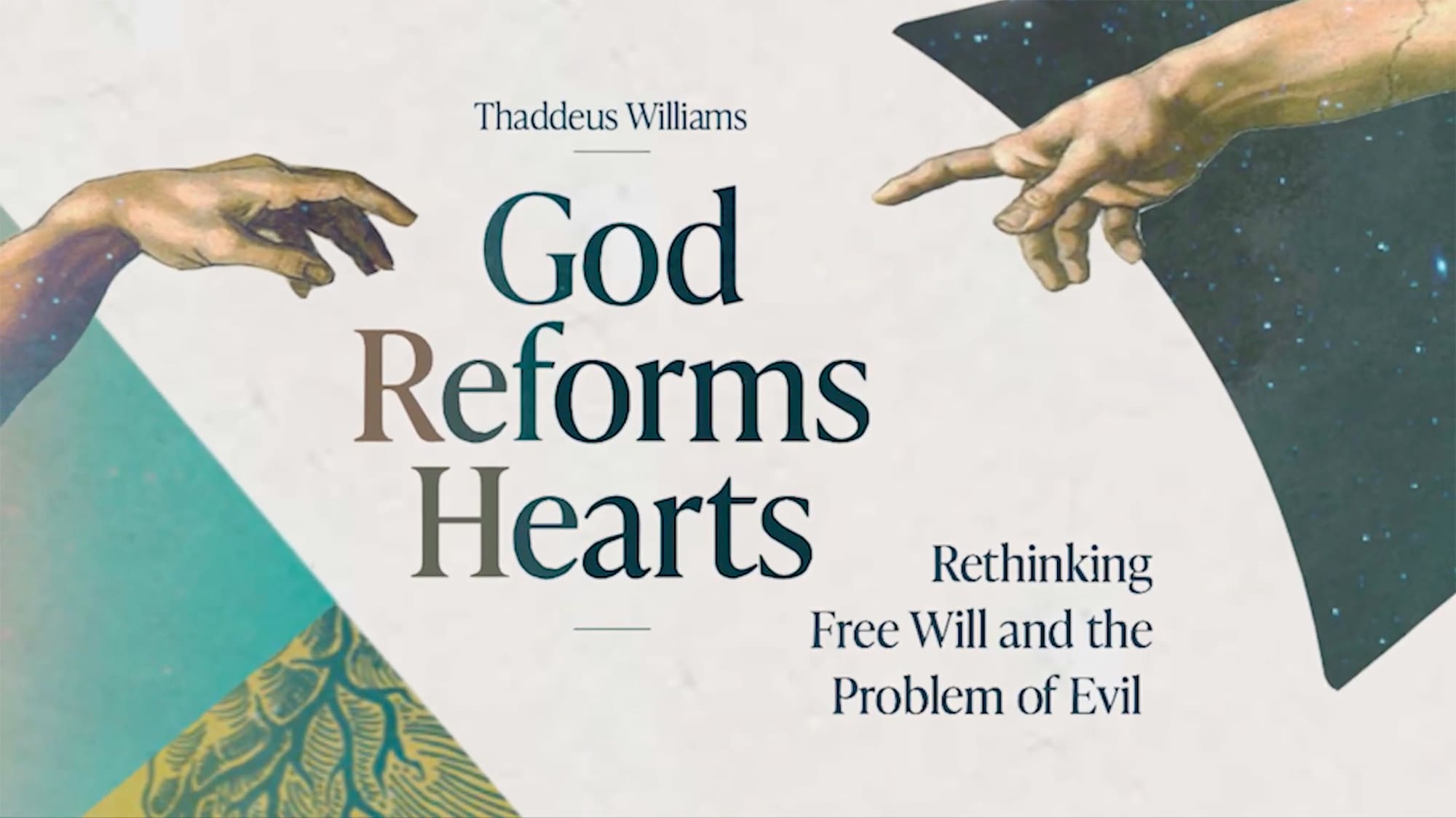Less than a year after “Confronting Injustice without Compromising Truth: 12 Questions Christians Should Ask About Social Justice“, Thaddeus Williams (associate professor of theology, B.A. ’01, M.A. ’05) releases “God Reforms Hearts“. When responding to the theological problem of evil, many resort to a “free will defense,” where God is not the creator of evil but of human freedom, by which evil is possible. But is this answer biblically and philosophically defensible?
In God Reforms Hearts, Williams offers a friendly challenge to the central claim of the free will defense―that love is possible only with true (or libertarian) free will. Williams argues that much thinking on free will fails to carve out the necessary distinction between an autonomous will and an unforced will. Scripture presents a God who desires relationship and places moral requirements on his often–rebellious creatures, but does absolute free will follow? Moreover, God’s work of transforming the human heart is more thorough than libertarian freedom allows.
With clarity, precision, and charity, Williams judges the merits and shortcomings of the relational free will defense while offering a philosophically and biblically robust alternative that draws from theologians of the past to point a way forward.
Why another book on the problem of evil? Judging by the volume of scholarly and popular work on this subject in recent decades, this perennial and vexing human question remains very much on our hearts and minds. Every now and again, though, there are truly new treatments that move the ball down the field. This is such a volume. Simultaneously rigorous and sympathetic in its engagement with contemporary defenders of libertarian free will, Williams also contributes fresh insights of his own to a debate in which ‘nothing new under the sun’ is often the rule. Especially among those of us who think we've already made up their minds on this question, God Reforms Hearts not only deserves but demands a serious reading and evaluation.
Michael Horton (B.A. ’87)
Westminster Seminary California
